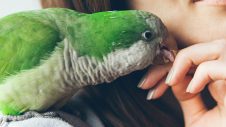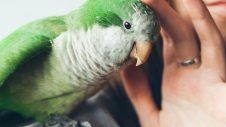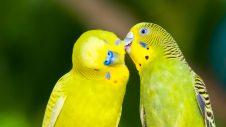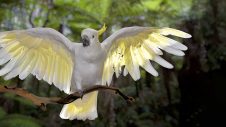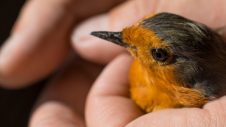Canker is the name used to describe the disease caused by a protozoan (one-celled) parasite, Trichomonas gallinae. It is seen mainly in budgerigars and pigeons and is very common in aviaries of these species or other species living with them. It is often fatal.
CAUSE
Trichomonas gallinae is a protozoan parasite that needs moisture to survive. In birds it lives in the crop and oesophagus, and in severe cases may infect other organs such as the liver. It is transmitted via the drinking water and seed, the requirement being the moisture. If dried out it dies rapidly, therefore a diagnosis is done by testing samples from live or recently dead birds.
CLINICAL SIGNS
The parasite causes irritation and ulceration of the crop wall, with a secondary bacterial infection often following. The signs seen relate to this effect. A common sign is vomiting (distinguished from regurgitation by the vomitus getting onto the top of the head while the bird shakes its head) and weight loss.
A post-mortem often shows yellowish, cheese-like deposits in the crop. The paste is easily seen under a microscope.
Some birds can be carriers and show no signs even after several years of infection. The amount of Trichomonads seen on a wet smear often correlates with the clinical signs.
TREATMENT
Birds can be treated with Ronidazole (Ronnivet-S) in the water for seven days. It has a wide safety margin. Regular re-treatments are advised.
Pigeons can be treated in a single dose of Carnidazole (Spartrix) and Metronidazole (Flagyl), has been also used in the past orally for 2-10 days. All of these drugs are prescription only, not for sale over the counter.
PREVENTION
Prevention is much better than treatment. It consists of:
1. Hygiene – thorough scrubbing of water and feed dishes, and allow them to dry.
2. Quarantine – isolate new birds and treat them as above as a preventative measure after initial testing.
3. Treat all birds prior to breeding season.

 Greencross Vets
Greencross Vets 